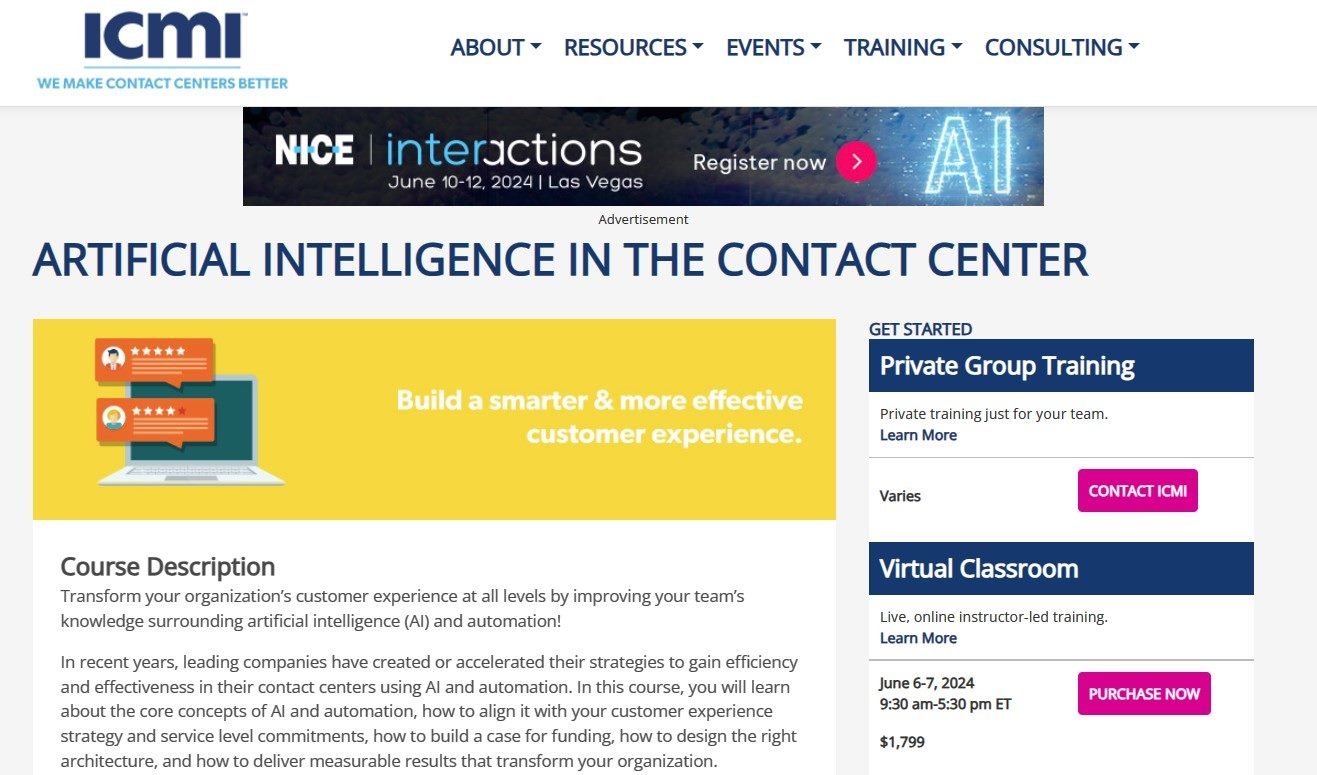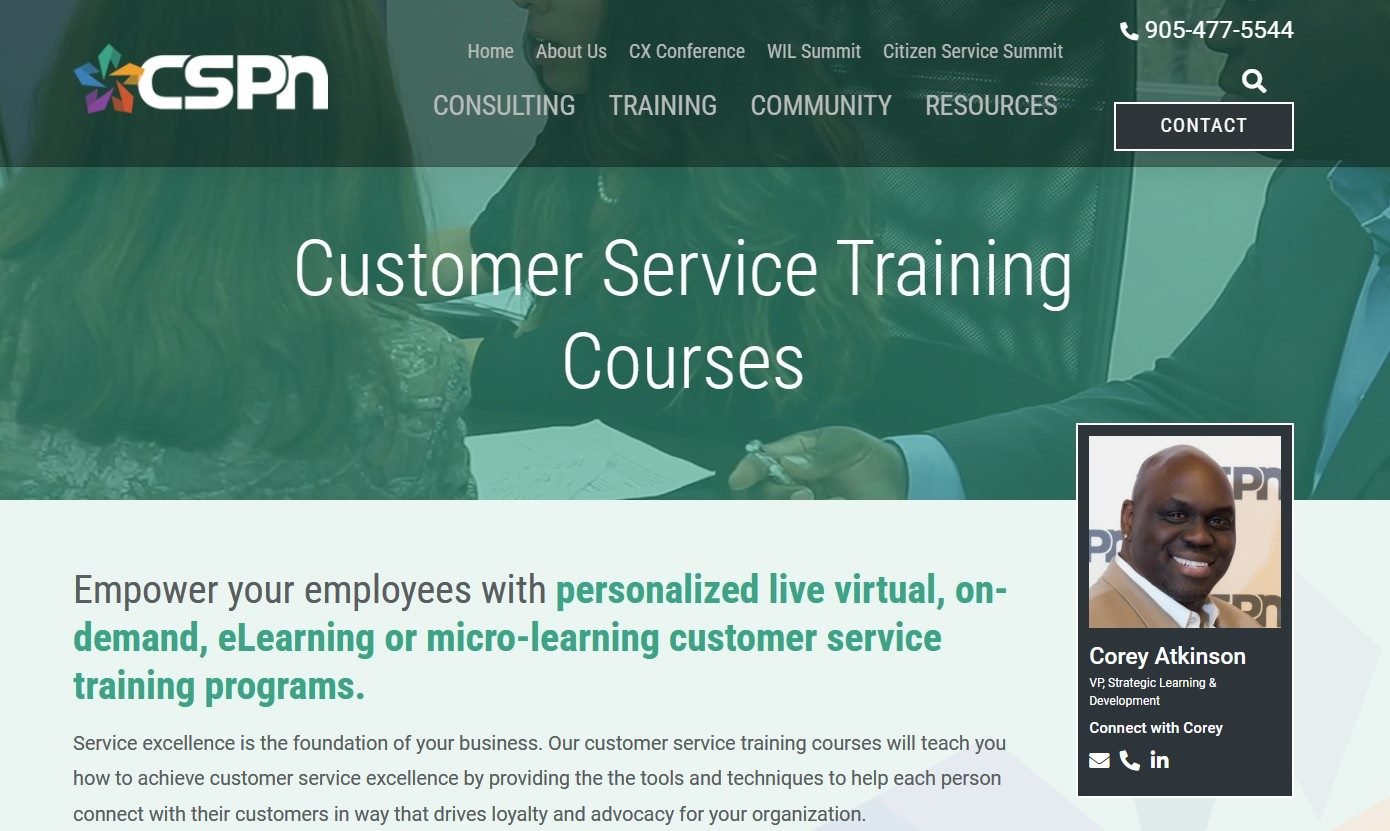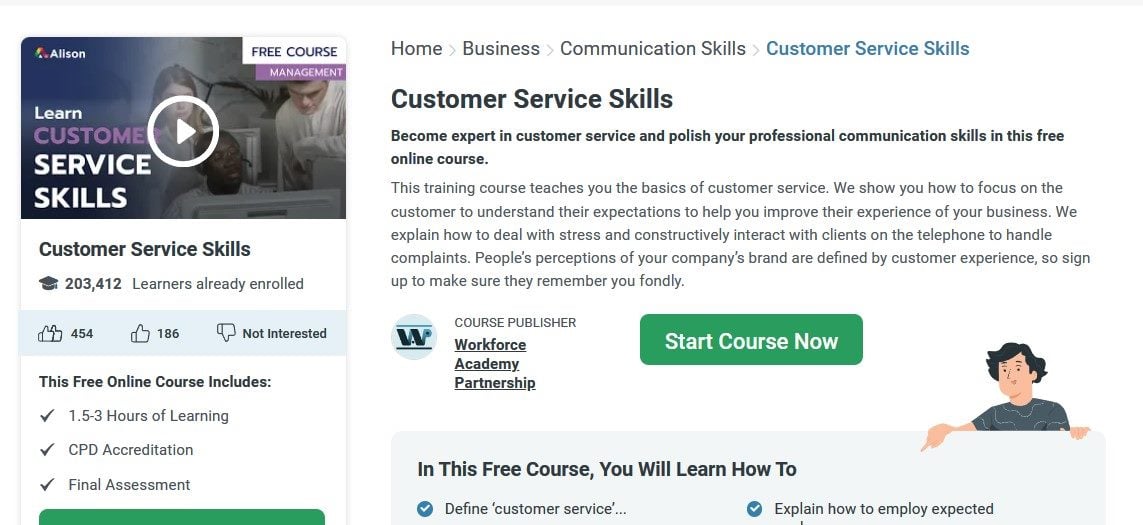The Gist
- Certification boosts careers. Contact center certifications elevate career opportunities and salary potential.
- Skills enhancement essential. Certifications develop critical communication and problem-solving skills.
- Industry recognition key. Professional certifications signal expertise and commitment to quality service.
Professional certifications are pivotal for customer service and contact center professionals aiming to enhance their expertise, credibility and career prospects. From frontline customer service representatives to managerial roles, obtaining a certification signifies a commitment to excellence and equips professionals with the latest strategies, technologies, and best practices essential for delivering exceptional customer experiences.
This article examines the top five contact center and customer service certifications, offering insights into their benefits, key focus areas, and potential for career advancement and service improvement.
Introduction to Certifications
Certifications play a significant role in the contact center and customer service sectors, serving as a benchmark of professional competence and expertise. They validate an individual's commitment to their profession, mastery of specific skills and understanding of industry best practices. For professionals, certifications are not just credentials to adorn their resumes; they are tools for personal and professional growth.
These certifications help in honing vital communication, problem-solving, and management skills, all of which are indispensable in the fast-paced customer service environment. Additionally, they are vital for professionals who wish to stay current in the latest contact center and customer service technology and practices.
These certifications open doors to career advancement opportunities, leading to higher positions, better salaries and more significant responsibilities. By emphasizing a commitment to quality and continual learning, certifications enhance a professional's credibility within their business and in the broader industry, setting a foundation for a rewarding career in customer service and contact center roles.
CMSWire reached out to Foote Partners, a proprietary data research company that collects data from over 4,400 U.S. and Canadian employers, giving them access to all the details on the industry's most up-to-date tech salary, bonus and skills, and certifications research. According to Foote Partners Research Director Bill Reynolds, certifications are currently earning average cash pay premiums in the 4% to 8% (of base pay) range. With salaries for a contact center manager, for instance, averaging between $82,597 and $114,834 a year, that indicates that certifications have the potential to increase wages from $3,303 to $6,607 for the lowest range, and $4,593 to $9,186 for the highest.
Related Article: The Key Skills Every Customer Service Representative Should Have
The Value of Certification in Customer Service
Obtaining a certification in customer service yields multifaceted benefits that extend beyond the individual to impact the business and its customers. For professionals, certifications are a catalyst for professional development, offering structured learning paths that enhance their skills and knowledge base. This education not only bolsters their confidence but also prepares them to tackle complex challenges with innovative solutions, enhancing career growth and opening new avenues for advancement.
From a business standpoint, certified professionals significantly contribute to service quality. Their refined skills ensure more effective communication, problem resolution, and customer interaction, directly influencing customer satisfaction and loyalty. This elevated level of service can differentiate a company in a competitive market, potentially leading to increased customer retention rates and positive word-of-mouth.
CMSWire spoke with Raghu Ravinutala, CEO and co-founder at Yellow.ai, a unified customer service automation platform provider, who said that from speaking with enterprise clients in the call center space, it's evident credible and relevant certifications and courses do contribute to assessing an agent's effectiveness and distinguishing them from their peers. "Continuous learning and development are particularly crucial in an industry that is evolving rapidly, especially with the integration of AI technology," said Ravinutala.
In addition, certifications offer industry recognition, signaling a professional's dedication and expertise to employers, peers and customers. This recognition can elevate a professional’s standing within the industry, making them more attractive to current and prospective employers. In essence, the value of certification in customer service lies in its ability to enrich the professional’s capabilities, enhance service quality, and catalyze career growth, collectively contributing to the broader goals of customer satisfaction and business success.
CMSWire also spoke with Glen Clodore, VP of operational excellence at LivePerson, a conversational AI platform provider, who said that if a certification is mentioned in a job posting, certified candidates can expect offers on the higher side of the salary bracket. "If there is no mention of certification in the posting, the salary approach will be mostly focused on profile and experience."
Related Article: Customer Service Training: 8 Strategies to Empower Your Team
The Certified Customer Service Professional (CCSP)
The Certified Customer Service Professional (CCSP) certification by the National Customer Service Association (NCSA) is designed for management-level professionals aiming to excel in customer service excellence. It recognizes individuals who have demonstrated dedication to customer-centric organizations through a minimum of two years of active participation in the customer service field and passing a rigorous examination. The certification process includes studying a required guide, "Managing Service Excellence," and completing an online exam. The CCSP designation underscores a commitment to high service standards for both internal and external customers.

The CCSP certification is designed for individuals with at least two years of customer service experience. Registration for the exam can be done individually ($345) or as a group for discounted fees ($330 or less, depending on the number in the group), with the exam taken online within 30 days of registration. Passing requires a score of 75% or higher. The certification lasts for two years, after which a lifetime certification can be applied for. The exam covers key areas including service foundations, human dynamics, and customer interaction, and must be completed in one sitting.
HDI Customer Service Representative (HDI-CSR)
The HDI Customer Service Representative (HDI-CSR) certification is designed for individuals who work in customer service and support roles, focusing on providing exceptional service to customers. Offered by HDI, a professional association and certification body for the technical service and support industry, this certification aims to equip customer service professionals with the essential knowledge and skills needed to effectively address customer inquiries, resolve issues, and contribute to the overall satisfaction and loyalty of customers.

The HDI-CSR certification is suited for anyone in a customer-facing role, including support center analysts, help desk technicians, customer service representatives, and anyone looking to establish or advance their career in customer service and support. By obtaining this certification, professionals can prove their ability to provide high-quality service, improve customer satisfaction, and make a positive impact on their business. The price of the certification ranges from $549 to $999, and prospective students can get a sneak peek at the course before registering.
ICMI’s Artificial Intelligence in the Contact Center
The International Customer Management Institute's (ICMI) Artificial Intelligence in the Contact Center certification course is designed to enhance team knowledge of AI and automation, aligning these technologies with customer experience strategies. The course covers AI core concepts, architecture design and measurable outcomes to transform organizations.

This certification is well-suited for various managerial and strategic roles, and offers a comprehensive outline on implementing AI, optimizing contact center operations and preparing for future innovations. This instructor-led, two-day course is ideal for professionals at any stage of AI integration planning. The cost for the virtually taught course is $1,799, with additional pricing available for private group training.
“Alongside various other courses and certifications, in our view, it will be increasingly essential for professionals to undergo fundamental training on leveraging AI to boost productivity and efficiency in customer service roles,” said Ravinutala. “Many enterprises and contact centers are gradually instituting internal training initiatives to enhance the skill sets of their workforce when it comes to AI.” Additionally, Ravinutala suggested that they will seek proactive individuals who are pursuing certifications and courses to remain abreast of industry advancements — including AI.
Certified Client Service Specialist (CCSS)
The Customer Service Professionals Network's (CSPN) Certified Client Service Specialist (CCSS) certification is designed to educate and certify individuals on the core principles of excellent customer service. The CCSS curriculum focuses on delivering responsive customer service, managing difficult client situations, using service techniques that drive sales and effectively resolving conflicts.

The CCSS program is tailored for a wide range of individuals aiming to enhance their customer service skills or enter the customer service industry, including customer service representatives, inside sales personnel, supervisors and team leaders. While prior customer service knowledge is beneficial, it's not mandatory with this course. CSPN's designation process, consisting of membership, accredited programs completion, exams, and upholding the designation, ensures professionals are well-equipped to excel in their roles. Accredited programs, available in public sessions or customized onsite training, cover essential topics for effective customer service delivery and management, and cost $499 for CSPN members and $599 for non-members.
Alison's Customer Service Skills Certification
We would be remiss if we did not mention Alison's free Customer Service Skills certification course, which is designed to enhance professionals' ability to effectively handle customers, understand their needs and provide exceptional service. This online course aims to equip learners with the knowledge and skills necessary for successful customer interactions, improving customer satisfaction and positively contributing to a company's service offerings. It's ideal for individuals seeking to improve their customer service capabilities in any industry.

The course provides essential customer service skills, focusing on understanding and meeting customer expectations to improve their business experience. Students learn stress management techniques and how to effectively communicate over the phone, including handling complaints. The curriculum covers key topics such as customer service fundamentals, customer engagement, telecommunication etiquette, complaint resolution, and stress resilience, equipping students with the skills to make a positive impact on their company's customer perception.
As with all Alison courses, the Customer Service Skills Certification course is free. To successfully complete the course, students need to score 80% or higher in each course assessment. After successfully completing the course, graduates have the option to purchase a digital, printed, or framed certificate for a fee ranging from $22 to $43.
Choosing the Right Certification
Selecting the right certification in the contact center or customer service arena is a crucial step that demands careful consideration of professional aspirations, interests and current expertise. To make the most appropriate choice, start by aligning potential certifications with long-term career goals, ensuring they pave the way for one’s desired career trajectory. It's equally important to choose a field that sparks genuine interest, as passion for the subject matter not only enhances the learning experience but also contributes to long-term job satisfaction. Additionally, assessing the student’s existing skill level is critical to identifying a certification that complements their background, whether they're just starting or looking for advanced credentials.
“When it comes to an individual’s career path, employees and candidates believe certifications can accelerate career progression, help them stand out in a crowded jobs market, and provide a quick, formal proof point that they have the abilities employers are looking for,” explained Clodore. “They represent both a financial and time investment, and employees want to get the best possible ROI.” Clodore suggested that this is why employees and candidates tend to be drawn toward the better-known certifications, even if they only cover a part of what they successfully do (a methodology), or are peripheral to the role they have today.
The decision to pursue certification also involves practical considerations such as the time and financial investment that is required. Evaluating the total commitment necessary to complete the certification process, including study time, coursework, and examination, is essential to ensure it fits within one’s current professional and personal life. The cost, including exam fees and any preparatory resources, must be factored into the decision, with an eye on the potential return on investment through career advancement opportunities and possible salary increases. In addition, certification is often the beginning of a journey of continuous learning, with many credentials requiring ongoing education or renewal. This commitment to perpetual professional development should align with the student’s readiness to engage in lifelong learning.
Thorough research into potential certifications, including consultations with mentors or colleagues who have pursued similar paths, can provide valuable insights. Students should consider the reputation of the certifying body, as the prestige of the organization behind the certification can significantly influence how it's perceived within the industry. By thoughtfully considering these aspects, one can choose a certification that not only bolsters their professional skills but also aligns with their personal passions and career ambitions, setting a solid foundation for success in the customer service and contact center field.
The choice of certification also depends on whether it is the individual choosing it, or their employer. Clodore said that the wide array of customer service and contact center certifications, along with numerous certification institutes, can dilute the impact or value of this type of certification when contact center culture pushes for and promotes a standard certification. When this occurs, he said, the business gets certified rather than individuals. “These are certifications like ISO 18295 or COPC. Individuals become familiar with the chosen standard but do not get personally certified."
Final Thoughts
The top five contact center and customer service certifications each offer unique benefits for professionals looking to enhance their expertise, credibility, and career prospects in the continually evolving field of customer service.
By carefully aligning certification options with personal goals, existing skills, and organizational needs, customer service and contact center professionals can choose the right path to elevate their capabilities, drive service excellence and position themselves for long-term success.
